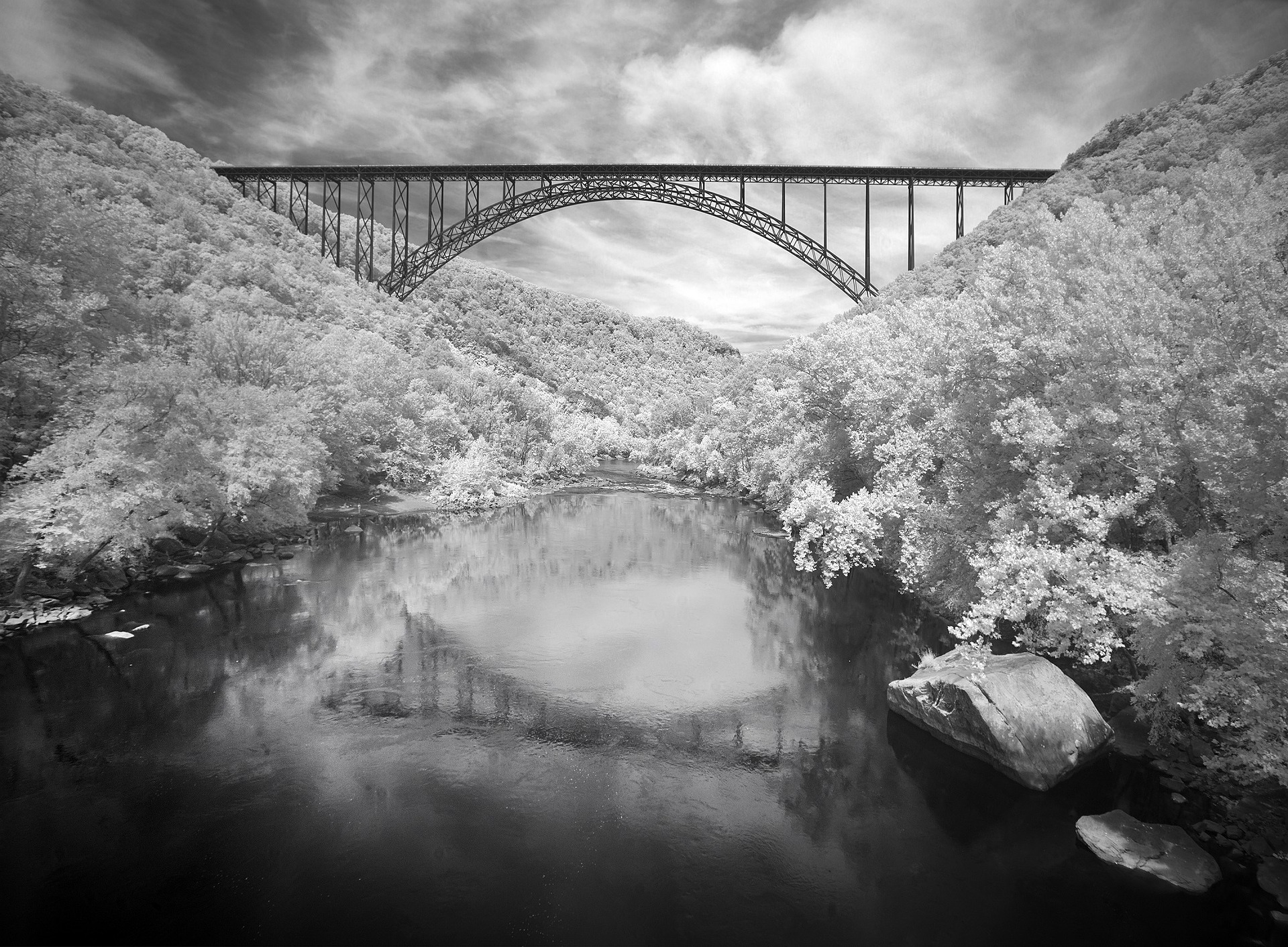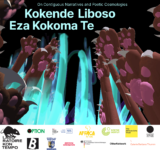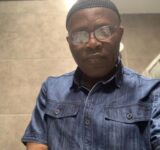Translated by Jethro Soutar
Svinesund, 9 August 2008
“When the guns cease to blitz
Kuduro still transmits
Coz words are more powerful than bullets.”
– Bruno M, Já Respeita Né
7:26 AM
I must have been totally lost in Bruno M’s rhymes. I hadn’t noticed the bus slow down and come to a stop in a lay-by in amidst all that exuberant green. I hadn’t even noticed us cross the Iddefjord that separated Sweden from Norway, going over the new Svinesund Bridge, built beside its neighbour, now rechristened the Old Svinesund Bridge. I’d been looking forward to seeing it, I’d never been this far north before. We were 70 miles south of Oslo, so 120 miles north of Gothenburg, where the previous night thousands of blond-haired, cheery and unexpectedly up-for-it Swedes had assembled at the Way Out West festival in the 137-hectare Slottsskogen Park and gone bonkers to our cocktail of kuduro, house and tropical techno, partying like it was the last August of their lives, or the day of the Last Judgement, and Luanda and Lisbon weren’t so far away or alien.
The door opened and two police officers came on board, both dressed in plain clothes but with badges pinned to their chests. The man, tall and blond in that way only vikings can be, introduced himself to the passengers, first in Norwegian, then English. I don’t remember his exact words, but I immediately began rehearsing the answers I’d prepared for any border agents I might meet on my 2,000-mile journey from Lisbon. I was travelling without a passport. I’d lost mine in a hotel in Paris a few weeks earlier, a total nightmare because we’d had to cancel several gigs in the height of summer and because—disasters always bring a plus-one to the party—I’m from Angola. If you’re aregular Angolan citizen, the last thing in the world you want to do is lose your passport. I’d have given anything to have lost my phone, my suitcase full of clothes, my laptop, anything but my passport, because that meant travelling back to Luanda, finding a fixer, paying the emergency tax and praying to Kianda, our Saint Ephigenia, to bless the computers at the Foreigners and Migration Service and not have the system crash.
But now I was appealing to Saint Kaleb of Axum and Saint Benedict the Moor, praying I’d not falter when my turn came to show my documents, praying my story would come out convincingly. It didn’t. I showed the blond guy my Portuguese residency card and he looked at it with great distrust. He asked to see my passport. I lied, said it was inmy suitcase. The female officer, a dark-haired woman who looked like a judo expert, came over to join us, having finished checking the other passengers. Evidently I was the only person on board with a dodgy document – I was likely the first foreigner to ever try crossing that border with a residency card issued by the Portuguese Foreigners and Borders Service.
The blond guy, who could easily have been in the audience the night before, told me I’d have to get my passport. He instructed the bus driver to open the luggage compartment and accompanied me off the bus. As the two officers escorted me to my suitcase, I thought about starting again and telling the truth: that I didn’t have a valid passport; that what I was about to show them had long since expired. Furthermore, having last been valid before Jonas Savimbi had breathed his final breath, it was so ravaged by time that nobody in their right mind could expect to travel across Europe using it. And further furthermore, the picture on it looked more like a painting by the Dutch expressionist master Willem de Kooning than it did a photograph of me.
My legs were like jelly, but I affected the most assured pose I’d ever struck and handed over the passport, just like that, barefaced, or ‘rotten-faced’ as we say in Angola. My audacity, the irresponsibility of my every gesture, must have sent alarm bells ringing in the two officers’ heads. Only a lunatic—or a high-level criminal—would dare to cross Europe by bus and by train with a document as threadbare as this and backed by the cock-and-bull story that he was a musician in a Lisbon band with a gig to play at one of Europe’s most iconic electronic music festivals that night. I wouldn’t have believed me myself.
They told me to gather up my belongings, we were going to the station to answer a few questions. I said nothing. I felt sweat forming on my brow, my mouth drying up, my heart racing. I had no doubt that the slightest sudden movement would make me sick.
We drove along in total silence, the two officers exchanging not a word. Again I thought about trying to explain things, a sort of pleading for my freedom crossed with a telling of the truth, the whole truth. But… What truth? Where to start? No one had asked me to go out into the world like some elder missionary spreading the gospel of kuduro. How could I begin to explain what kuduro even was?
The officers were unlikely to take kindly to my version of the truth. If I’d started talking about Jean-Claude Van Damme’s dancing, muay thai tournaments and Lisbon raves, mixing Belgium, Thailand, Portugal and Angola into the same sentence, they’d have thought at the very least that I belonged to some kind of criminal network operating on three continents. So I kept my mouth shut and looked out of the window, it might be my last chance to see Scandinavia. I tried to shut everything else out, to lose myself in the greenery and think freely. Kuduro, passports, freedom?
If I’m here it’s because I chose to be, I concluded. Buy my choice was also, in the final analysis, a product of my restricted movement. It took being caught at a border without proper documents for me to realise I’d always been a prisoner of sorts. Kuduro had been my passport to the world, thanks to it I’d travelled to places I’d never dreamed of visiting. But the chickens had come home to roost. I didn’t need to hear the Norwegian police’s verdict, my fate had been sealed the moment I set out on this journey. Whatever awaited me in that cell hardly mattered now.
The will to plead my innocence drained out of me.
7:30 AM
Jean-Claude Van Damme was the epiphany. In a scene from Kickboxer, arguably the most celebrated beat ’em up film in the Benguela of my childhood, Van Damme dances drunkenly to Feeling So Good Today by Beau Williams, in the company of two Thai women.
That iconic scene, with Belgium’s king of the splits dancing so ungainly and so ungroovily, moving his body without shaking his hips, which seem trapped or rigid, flicked some kind of switch for Tony Amado, our Joseph Smith Jr. In a flash of inspiration, Amado took the rhythm sequence from that electronic thing we call batida and let it leap out of the synthesizer, thus creating, in almost one fell swoop, the classic track Amba kuduro, a homage to Jean-Claude, our ‘muse’. And just like that, kuduro was born.
The suggestive choreography would prove to be kuduro’s driving force. It may have been a cousin to North-American break dancing, but that didn’t stop it appropriating and reinventing dance steps from more African latitudes, including ndombolo from the Congo, or from developing a typically Angolan plasticity. And all the while it kept advancing, by natural progression, towards a musical finish whereby the melody and harmony were relegated to the background and the rhythm and unexpected lyrics were thrust centre stage.
Vaca Louca and Salsicha were hugely influential figures too. As dancers they would accompany Tony Amado—as well as Sebem, another kuduro pioneer—pushing the plasticity to the limit in what became a decidedly acrobatic dance.
7:42 AM
I looked at the two officers and felt no fear. Something like this was bound to happen one day given all the things our music made us do. I’d already defied countless bouncers, beasts-of-men who would have ordinarily snapped me in two, but because I had a microphone in my hand, tolerated me disrespecting their authority, screaming at them to let our most gassed fans up on stage.
Besides, on my list of major martyrdoms, inconveniences caused by the police are nothing compared to those caused by consular functionaries. Of them I really am afraid, I get shivers just thinking about them. Whenever I have to go to the consul or embassy to apply for a visa, I have nightmares the night before. I get up and dress seriously, the sort of clothes nobody could look at and think I basically made my living from kuduro. I always arrive at least a couple of hours before my appointment and adopt a demeanour to match my attire, the humble believer at his first communion.
Friends tell me to just get married and be done with these trips to the embassy. But get married for paperwork? I’ve considered it, of course, I have. I even had the perfect candidate in Sofia, with her golden hair and funky sway. If I hadn’t known she’d been born in Rio de Mouro I’d have thought her one of those tugas, as we called the Portuguese in Angola who forgot to go home on 11th November 1975. But anyway, I’d pictured things differently… when it came to a thing like marriage, I wanted to be as tacky as possible. Take my future bride for a walk somewhere pretty, get down on one knee, pluck the engagement ring from my breast pocket and ask her to accept me and my last name, put up with me until my dying breath. Those words or some others improvised in the heat of the moment, between nervous pauses, stuttered hesitations, sweaty palms, wobbly knees—that’s why we kneel down, lest the devil tie our legs in knots and trip us over. Whoever invented that timely genuflection ritual knew exactly what he was doing.
I’d come close to giving up trying on many occasions too, no one likes to be humiliated every time they need a visa. But I’d always think of all the people who listened to what me and my musical accomplices created in that Campo de Ourique neighbourhood basement, of all the professionals who dedicated their time to making our music take shape on stage, in the studio, in videos. I’d think of their families, deprived of loved ones for all those nights they were out with us, breathing life into our nascent ideas. I’d think of all the people who filled concert halls whenever we visited their cities, who bought our records, who paid to come and see our shows. And I’d feel a sense of responsibility for every last one of them. Not being there, not making every effort to get myself there, would be a form of betrayal. I don’t mean to be melodramatic. Just because my income tax form lists my profession as musician doesn’t give me the special right to complain about the price I pay for being a foreigner every time I set out to conquer the world north of the River Minho. Or in my case, given my nationality, north of the River Zaire.
“Whites Can Dance Too” is an excerpt from the novel of the same title and appears as an online-only feature of Bakwa 09: Taxi Drivers who Drive Us Nowhere and other Travel Stories
Kalaf Epalanga, born in Benguela, Angola in 1978, is a well-known musician and writer living in Lisbon since the 1990s. As a musician, he co-founded the record label A Enchufada, a creative and dynamic platform that promotes new music styles from Portugal around the world, and went on to form the MTV Europe Music Award-winning band, Buraka Som Sistema. He wrote a regular column of short literary chronicles for the prestigious newspaper, O Público. Também os Brancos Sabem Dançar is his first novel.
© Kalaf Epalanga






